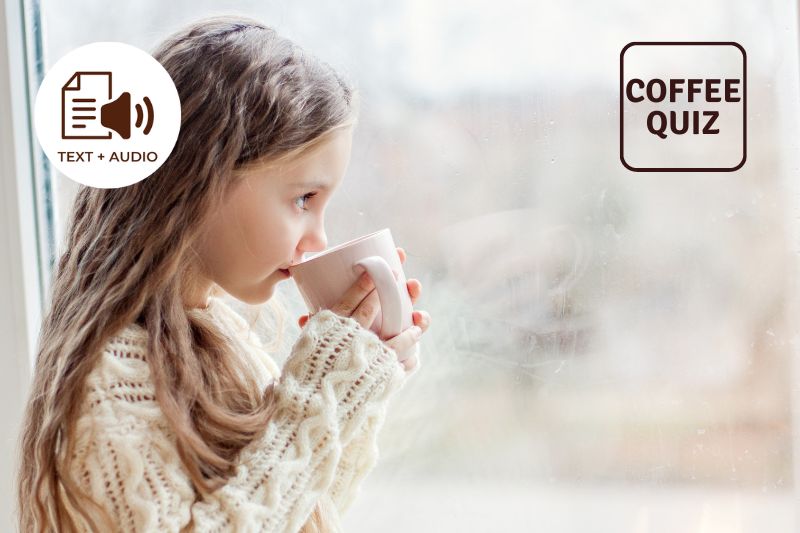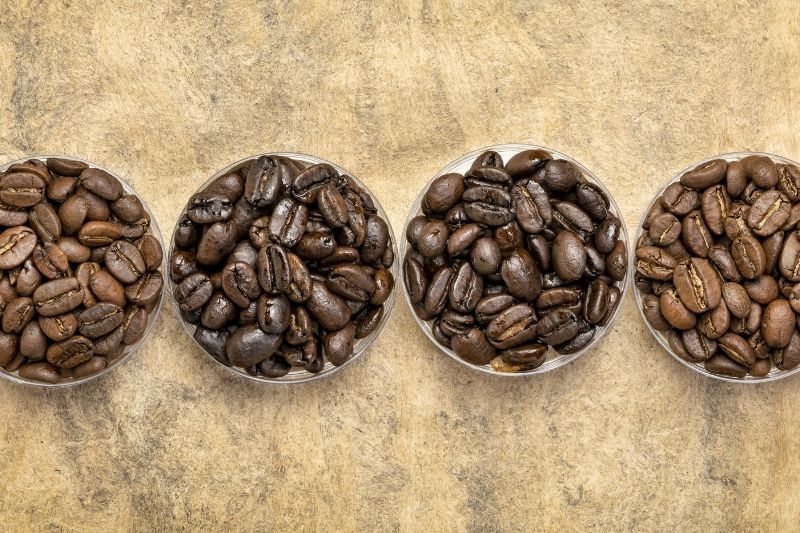Student life can be very demanding and challenging. Generally, students have to do their learning during school hours. Still, often, they need to extend their academic efforts way past those to keep up with the requirements of their different classes. This means that their brains are taxed from daytime until dark.
Since a lot of importance is placed on education and school performance, finding ways to keep up with the rigors of scholastic life is essential. Incidentally, coffee has been part of the solution or strategy for many students. Case in point, studies reveal that more than 90 percent of college students consume caffeine, and coffee is the preferred caffeinated drink among them.
Learn all about caffeine and coffee.
How Coffee Impacts Student Performance
It is general knowledge that coffee can help you endure an exhausting day. From what you've heard repeatedly over the years, you've accepted it as gospel that it can keep you awake, thus making it a great companion for anybody who wants to burn the midnight oil.
Students, particularly college students, tend to drink it at night to help them stay awake while reviewing for tests or writing papers. The following day, they also drink it to keep themselves from falling asleep during class, tired as they are after staying up late. It certainly seems to work, which is why coffee can be a powerful learning tool. But what's the science behind it?
Preventing drowsiness
The caffeine in coffee prevents exhaustion or sleepiness by blocking adenosine. This is a fatigue-triggering substance naturally made by the body. Adenosine has four receptor subtypes: A1, A2A, A2B, and A3ARs. When the A1 receptor is blocked, drowsiness is prevented. This explains why coffee allows you to stay awake even when you should be feeling sleepy.
Considering that coffee can block the body's tendency to get drowsy, it has an energizing effect on people. It also increases mental alertness and improves reaction time. Understandably, students would want to tap into these benefits when going to early morning classes or studying all night.
Increasing cognition
Meanwhile, when the A2A receptor is blocked, levels of dopamine (the brain's neurotransmitter that regulates mood) increase. This causes brain stimulation and mood enhancement. Caffeine also has an interesting direct interaction with dopamine that results in firing up those hypothalamus-regulated parts of the nervous system and improving cognition.
With increased dopamine signals, coffee drinkers can focus better. Coffee is especially helpful to those with low dopamine levels, such as people with ADHD. Consuming caffeine allows them to concentrate more easily.
Boosting memory
There are also studies that demonstrate caffeine's ability to improve memory, both short-term and long-term. It increases resting brain entropy, which refers to the number of neural states accessed by the brain. Greater entropy means that the brain's ability to process information has been improved, hence the higher memory retention level.
Top Coffee Recommendations for Students
Not all coffee drinks are created equal, of course, so students need to find out which ones are most beneficial to them. This is why we've gathered the following coffee options as our recommendations for studying.

Black coffee
The idea is that coffee with a higher caffeine level is more effective. Still, coffee has the same amount of caffeine across the board. The difference between a cup of black coffee and a cup of café au lait is that black coffee has more coffee than coffee mixed with milk; therefore, it has more caffeine.
If you want coffee with an even higher caffeine concentration than plain black coffee, go for an espresso. It has a lower coffee grounds to water ratio, a much finer grind, as well as a pressurized brewing method. All these details result in an intense drink that will give you a boost of energy and mental alertness.
Dark roast coffee
If you're unfamiliar with coffee, you might think that dark roast coffee is associated with black coffee since both allude to dark hues. However, this isn't the case. While a dark roast coffee is characterized by its dark brown, almost black color, its distinction is really in its flavor, which is produced by the roasting process.
Find out how roasting affects the taste of coffee.
Nevertheless, in recommending dark roast coffee to students, the focus isn't on caffeine this time but on another set of compounds known as phenylindanes. Recent studies indicate that these have a significant contribution to boosting memory cells. As it happens, these compounds are formed while the coffee beans are being roasted, and longer roasting time means more phenylindanes.
Single-serve drip-on coffee
This is a good option for students, not just for the coffee itself but for its process. Single-serve drip-on coffee comes in a wide variety of coffee choices, so you can double its advantage by picking plain black coffee for its higher caffeine content.
This is best for long study or paper-writing sessions when you must take periodic breaks to let your brain rest and recharge. Preparing this coffee involves opening a disposable filter bag that contains just the right amount of coffee and then hooking its paper ears onto the sides of a cup. Once the bag is secured onto the cup, you can slowly pour hot water onto the ground coffee.
There will be a couple of pauses between pours because the bag will fill, and you'll have to wait for the resulting liquid to drip into the cup before you can pour again. It's an easy but deliberate process that will give your mind a rest from studying and ease the pressure so you can truly take a breather from your work. Afterward, you have a nice cup of joe to enjoy and draw caffeine's benefits from.
Read further on single-serve drip-on coffee.
Iced Coffee
While iced coffee doesn't have more caffeine or some other compound that's supposed to enhance or reinforce the benefits to your brain while you're studying, it does have the advantage of temperature.
As a rule, cold drinks help wake people up and refresh them. An iced coffee will definitely help if your goal is to ward off sleepiness. You might also find that iced coffee is not as acidic as hot coffee an added perk, especially if you tend to feel anxious or nervous over exams or papers.
If you're not a fan of hot black coffee, let alone cold black coffee, and you don't want to mess with it by adding condiments, use cold brew coffee to make your iced coffee drink. One of the best things about cold brew coffee is that it has a sweeter, less acidic, and smoother taste with a thicker and creamier mouthfeel.
Learn more about cold brew coffee.
Coffee with additional ingredients
Coffee is already a healthful drink, but with the addition of another ingredient or two, you can get even more benefits. Common coffee combinations include mushrooms, ginger, turmeric, and cacao. Health-conscious coffee drinkers often go for these options to help boost their physical well-being.
If you want a coffee combination that will help with your studies, try one with cinnamon. This spice adds some more antioxidants to the drink. Besides helping boost your immune system and lowering your risk of cancer, cinnamon has also been found to improve learning and memory significantly. You don't even have to set out to buy a commercially available coffee with cinnamon product. You can simply sprinkle your coffee with ground cinnamon from your spice rack.
Another super coffee combination would be ginseng coffee. This is a blend of ground coffee and ginseng powder. Ginseng root, no matter where it's from, has been used for medicinal purposes since ancient times. However, the Asian variety is considered more stimulating than the American one.
Among the many benefits of ginseng are immunity building, blood sugar regulation, inflammation reduction, and focus improvement. The last one makes it advantageous for student use. According to studies, ginseng has been observed to give a short-term learning and concentration boost. Research has also shown that it enhances the effects of caffeine, making ginseng coffee ideal for students who are hard at work.
Coffee Drinking Guidelines for Students
In discussing coffee's benefits for students, it's prudent to limit it to college students. While 12-18 year olds are generally allowed coffee, the recommendation is that they limit it to 100 mg a day. One cup of coffee has roughly 95 mg of caffeine, so we can take one cup as the limit.

Then again, enforcing restrictions regarding coffee intake would be pointless when the same kids also consume caffeine-laced soda and energy drinks. It can be argued that at least coffee is antioxidant-rich and very much natural.
Time it right.
This depends on every coffee drinker, of course. Still, on a regular day, one that has you waking up in the morning from a decent amount of sleep, it's not ideal to take your coffee right away. People generally experience a natural cortisol (the stress hormone that triggers your fight or flight response) peak between 8 am and 9 am. This means that your body doesn't need the caffeine boost. Since your body is naturally alert at this time, the caffeine would just be wasted.
So, when is the best time to drink coffee? A caffeine jolt would be of the most use in the period after a cortisol peak. In the morning, it would be between 9 am and 11:30 am. In the afternoon, it would be between 1 pm and 5 pm.
Limit coffee to important tasks.
Coffee is most effective for those who are not habitual drinkers. Since regular drinkers can develop caffeine tolerance, coffee may not bring them the expected level of stimulation.
For the occasional drinker, it's wisest to take coffee as a study aid before or during tasks that require increased alertness. For instance, you might want to nurse a cup of joe while sitting in an extended class or spending your weekend writing papers.
Suppose you're intentional about drinking coffee and limit it to when you require the most energy and focus. In that case, you can gain the most benefit from it.
Spread out in small doses.
Many students are inclined to drink a large cup of coffee to stock up on enough caffeine to supposedly last them hours of classes or study sessions. However, taking your coffee in smaller doses over the period you need to stay mentally sharp is more beneficial.
Strategically spacing your coffee consumption over a long period will allow your energy level to keep up with your work as well as help you avoid the trap of caffeine highs and crashes.
It could be argued that a jumbo cup of coffee could last a person for hours. Still, unless you're using an insulated container, it wouldn't be very enjoyable for very long. If you're drinking iced, you'll end up with a weak, diluted drink once the ice melts. If you're drinking hot, you will be forced to sip tepid coffee in just a few minutes.
Reset caffeine tolerance.
While some people can easily limit their coffee consumption, others really enjoy coffee, and their bodies have unfortunately developed caffeine tolerance from regularly drinking it. If you have nurtured a daily coffee habit, consider resetting your caffeine tolerance.
In order to benefit from the usual perks of coffee, you have to avoid coffee for a certain period deliberately. You can quit it cold turkey or gently taper off consumption, but a week or two entirely without coffee should reset your tolerance for caffeine. If you need coffee during the school year, reset during holiday breaks.
You'll have to conduct caffeine intake maintenance to optimize coffee's benefits for your studies. This will allow you to enjoy coffee without sacrificing the benefits that can wane through frequent consumption.
Coffee Caveats for Students
Moderation, as always, is key. While research has shown that coffee has more good than bad side effects, this is only true when you restrict your consumption to a reasonable amount.
Read about coffee’s side effects.
If you drink too much coffee, you can suffer so much more than a high caffeine tolerance. For adults, the daily caffeine limit is 400mg. This means not exceeding four cups per day. High doses of caffeine could lead to certain health issues, including gastrointestinal distress, anxiety, and tooth decay.
You should also avoid coffee eight hours before bedtime. The general recommendation is to refrain from drinking any more after 3 pm, or it could disrupt your sleep. Of course, many students consume coffee to sustain their late-night toils. Still, the ideal situation is that you drink coffee and complete your schoolwork during the day.
Sleep disruption could lead to sleep deprivation. When you lack sleep, you tend to have difficulty staying mentally alert and concentrating, which you might try to remedy with more coffee. This cycle could lead to a form of caffeine dependence, so do your best to avoid falling into this trap.
It's all about healthy habits. Accompany judicious coffee consumption with smart study practices for best results.
Drinking too much coffee could also cause a caffeine crash, which would leave you feeling fatigued. If you drink enough to put you on a caffeine high, the crash is sure to follow, and it might occur (typically three to four hours from your last cup) just when you need mental presence.
Also, if you regularly drink coffee, you need to mind the sugar you consume from those coffee drinks. Not only might you be courting health problems from too much caffeine, but from too much sugar as well.
Final Thoughts
Considering all these benefits from caffeine, students have a higher chance of being more productive. With more energy, improved cognition, and better focus, students can certainly accomplish more and produce impressive results.
Abusing it, of course, could prove to be counterintuitive. Drink too much coffee and, instead of increased concentration, you can find yourself losing focus due to anxiety. Consume coffee responsibly, however, and you can count on reasonable caffeine intake to help you concentrate better.

Coffee is a wonderful beverage. With its ability to help improve cognitive function and increase energy, it's a drink that can help elicit better performance from you. It's essential to get to know it better to understand which kinds would serve you best and ensure that you can harness its advantages for the best results.
Get Free Bonus Books

Sign up for free to the Coffee Club to get advice and exclusive articles about how to choose Japanese Coffee, and tips, tricks, and recipes for enjoying Japanese coffee.
About the author
Kei Nishida
Author, CEO Dream of Japan
Certification: PMP, BS in Computer Science
Education: Western Washington University
Kei Nishida is a passionate Japanese tea and coffee connoisseur, writer, and the founder and CEO of Japanese Coffee Co. and Japanese Green Tea Co., both part of Dream of Japan.
His journey began with a mission to introduce the world to the unparalleled quality of Japanese green tea. Through Japanese Green Tea Co., he established the only company that sources premium tea grown in nutrient-rich sugarcane soil—an innovation that led to multiple Global Tea Champion awards.
Building on this success and his passion for Japanese craftsmanship, Kei expanded into the world of coffee, pioneering the launch of Japanese Coffee Co., the first company to bring Sumiyaki charcoal-roasted coffee to a global audience. His dedication to authenticity and quality ensures that this traditional Japanese roasting method, once a well-kept secret, is now enjoyed worldwide.
Beyond tea and coffee, Kei has also introduced Japan’s legendary craftsmanship to the world through Japanese Knife Co., making handmade katana-style knives—crafted by a renowned katana maker—available outside Japan for the first time.
Kei’s journey continues as he seeks out and shares the hidden treasures of Japan, one cup and one blade at a time.
Learn more about Kei









